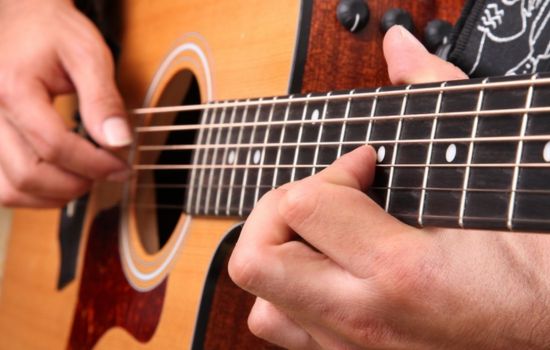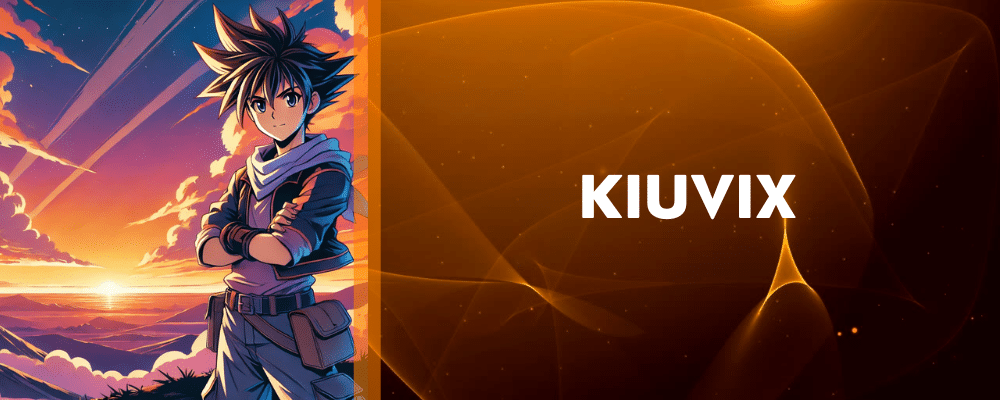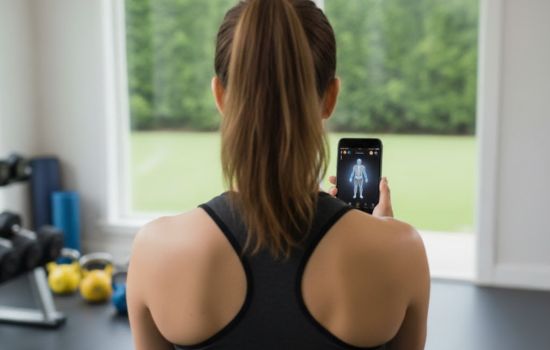Advertisements
It's not an exaggeration. It's pure neuroscience.
Every time you hear a catchy tune, your brain activates the same regions used for speaking, moving, and feeling emotions.
You are literally designed to be musical.
So why do millions of people believe they have “no talent” for music?
Advertisements
The answer will surprise you.
Advertisements
See also
- Master Your Rest
- Pill Reminder
- Detects radars easily
- The 10 Greatest Video Games of All Time
- Your name, its story
The Great Conspiracy Against Your Musical Potential
The traditional education system killed music for most people.
Think about it:
- Boring and theoretical music classes
- Teachers who prioritized perfection over fun
- Expensive and inaccessible instruments
- Rigid methods that did not respect individual styles
Result: Millions of people have developed “musical trauma” without realizing it.
They convinced themselves that music was for “others,” not for them.
The Musical Renaissance of the 21st Century
Something extraordinary is happening in the last 10 years:
Music is returning to the masses.
Not through elitist conservatories or expensive teachers.
Through the technology in your pocket.
Music apps are not just a technological trend.
Are the revenge of all those who were excluded from the musical world.
The Silent Revolution in Your Hands
Fender Play: The Democratization of Legendary Knowledge
Fender didn't need to create an educational app.
Their guitars are already cultural icons.
But they did it because they understood something profound:
A guitar without knowledge is just wood and metal.
Fender Play isn't just lessons. It's cultural transmission.
Each tutorial connects technique with history, chords with emotion, practice with passion.
It's like having direct access to the musical DNA of 75 years of rock, blues, country and pop.
Yousician: The Universal Translator of Musical Motivation
Why are video games addictive but traditional lessons boring?
Yousician solved this equation.
He took the neuroscience of gaming motivation and applied it to musical learning:
- Immediate achievements (your brain constantly releases dopamine)
- Visible progression (you see exactly how you improve every day)
- Calibrated challenges (neither too easy nor impossible)
- Healthy social competence (share progress with friends)
It's not superficial gamification. It's motivational engineering applied to education.
Ultimate Guitar: The Musical Wikipedia That Never Sleeps
Ultimate Guitar stores more musical knowledge than all the world's libraries combined.
But here's the revolutionary thing:
It's not just information. It's collective intelligence.
Is the musical evolution of the human species documented in real time.
The Science That Changes Everything
Recent studies reveal something that shatters all myths:
Your musical ability is not determined by the age at which you start.
It is determined by the quality and consistency of your practice.
Neuroscientists call it “musical neuroplasticity”:
- Your brain forms new musical connections at any age
- Adults process musical patterns more efficiently
- Life experience enriches musical expression
- Intrinsic motivation surpasses “natural talent”
You weren't late to the music day. You arrived at the perfect time.
The “Hidden Musician” Phenomenon
In every group of friends there is a “hidden musician.”
It is that person who:
- Hums melodies perfectly
- Recognizes songs in the first few seconds
- Automatically move your foot to the beat
- It has amazing playlists
- He speaks passionately about music
But he never plays an instrument.
Because?
Because someone, at some point, told them they “had no talent.”
That lie has cost millions of musicians around the world.
The Three Types of Musical Resistance
Technical Resistance
“It’s too difficult for me.”
Reality: Modern apps break down complex techniques into microscopic steps.
Temporary Resistance
“I don’t have enough time.”
Reality: 15 minutes of smart practice a day is better than 5 hours of scattered practice a week.
Psychological Resistance
“I’m too old to start.”
Reality: Adults have specific neurological advantages for musical learning.
Modern applications eliminate all three types of resistance simultaneously.
The Digital Alchemy of Musical Learning
What makes music apps so effective?
Extreme customization.
An app monitors:
- Your individual learning speed
- Your most frequent error patterns
- The times of day when you perform best
- Your emotional response to different genres
- Your progress compared to yourself (not others)
Result: An educational experience that adapts to you in real time.
It's like having a personal teacher who knows you better than you know yourself.
The Musical Butterfly Effect
Learning guitar triggers unexpected transformations:
Neurological Transformation
Your brain develops new connections that improve memory, coordination, and auditory processing.
Emotional Transformation
You have a healthy outlet for stress, sadness, joy, and frustration.
Social Transformation
You connect with online and offline music communities instantly.
Creative Transformation
You develop the ability to express yourself, which can be transferred to other areas.
Identity Transformation
You go from being “someone who listens to music” to “someone who makes music.”
A musical skill unlocks multiple life upgrades.
The Psychology of the “Magic Moment”
Every guitarist remembers his first “magic moment”:
That moment when a song you've been practicing for weeks finally sounds like it should sound.
Not just technically correct.
Emotionally correct.
That moment creates a healthy addiction:
- You're looking to recreate that feeling of flow.
- Practice without it feeling like work
- You forget about the outside world for minutes or hours.
- You feel a direct connection between emotion and expression
Apps are designed to generate these moments more frequently.
Five Myths That Block Your Musical Progress
Myth #1: “You Need Years to Sound Good”
Reality: You can play recognizable songs in weeks with smart practice.
Myth #2: “Adults Learn Slower”
Reality: Adults learn most efficiently through experience and motivation.
Myth #3: “You Need Expensive Equipment”
Reality: A basic guitar + smartphone is enough to get started.
Myth #4: “Talent Is Innate”
Reality: “Talent” is deliberate practice accumulated over years.
Myth #5: “Apps Don’t Replace Real Teachers”
Reality: Apps complement and often surpass traditional methods.
The Strategy of Musical “Micro-Moments”
Successful guitarists don't practice in marathon sessions.
They practice in distributed micro-moments:
- 10 minutes while the coffee is being prepared
- 15 minutes before bedtime
- 5 minutes during work breaks
- 20 minutes on weekends
Total: 30-50 minutes spread out vs. 2 hours at a time.
Result: Distributed learning is 300% more effective.
Apps are designed for micro-moments, not macro-sessions.
The Secret of the “Invisible Practice”
The best practice happens when you're not practicing.
Your brain consolidates musical learning during:
- Sleep (muscle memory is strengthened)
- Walks (rhythmic patterns are internalized)
- Moments of relaxation (creativity emerges naturally)
That's why consistent practice will always beat intensive practice.
Your subconscious works 24/7 integrating what you learned consciously.
The Question That Defines Your Musical Destiny
“If you could play just one song perfectly, what would it be?”
That song is your musical North Star.
It's your initial motivation, your first goal, your emotional reason to persevere when the technique becomes frustrating.
Every great guitarist started with a specific song that he was obsessed with.
The difference between those who learn and those who give up is keeping that obsession alive throughout the process.
The Moment of Personal Truth
There is a specific moment in each day of musical learning:
On the 21st.
Neuroscientifically, it is when new habits become established.
Psychologically, it's when you overcome the initial resistance.
Socially, it's when people start seeing you as "someone who plays guitar."
If you can make it to day 21, you have a 90% chance of becoming a guitarist.
If you quit before the 21st, you have a 90% chance of your guitar ending up as decoration.
The apps are specifically designed to take you beyond the 21st.

Conclusion
In the next 10 minutes, you are going to make one of these three decisions:
Decision A: Close this page, return to your usual routine, and continue being a music listener.
B: Save this article for “read later” and never think about learning guitar again.
C: Do something different.
Open Yousician and complete your first gamified lesson.
Explore Ultimate Guitar and look for the chords of that song that obsesses you.
Prove Fender Play and discover that your musical style is already inside you, waiting to be released.




